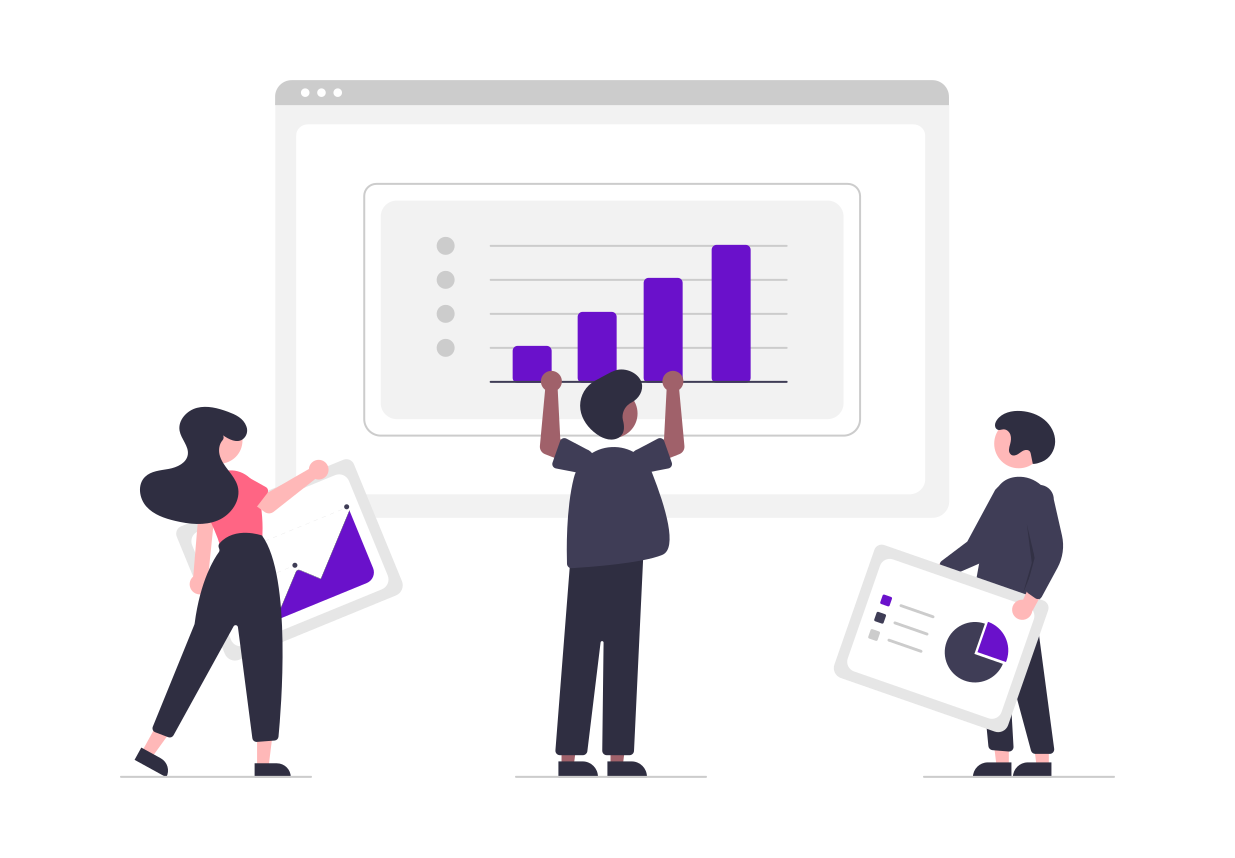In the age of digital transformation, the intersection of big data and marketing has become a pivotal force in reshaping business strategies. This powerful synergy is unlocking new possibilities, driving innovation, and enabling businesses to understand their customers like never before. This blog explores the transformative impact of big data on marketing, highlighting its key applications and the future it promises.
I. The Foundations of Big Data in Marketing
1. The Definition of Big Data
Big data refers to the vast volumes of structured and unstructured data generated by various sources such as social media, transactional systems, and IoT devices. This data, characterized by its high volume, velocity, and variety, provides invaluable insights when properly analyzed.
2. The Role of Marketing in the Digital Age
Marketing has evolved from traditional tactics to a data-driven discipline. The integration of big data into marketing strategies allows businesses to move beyond intuition and leverage empirical evidence to drive decisions.
II. Key Applications of Big Data in Marketing
1. Customer Insights and Analytics
Behavioral Analysis: Big data helps marketers understand customer behaviors by analyzing browsing patterns, purchase history, and social media interactions.
Demographic Insights: By examining demographic data, businesses can tailor their marketing efforts to specific age groups, genders, income levels, and more.
2. Personalization
Customized Content: Big data enables the creation of personalized content that resonates with individual preferences, increasing engagement and conversion rates.
Targeted Campaigns: Marketers can design highly targeted campaigns based on detailed customer profiles and predictive analytics.
3. Predictive Analytics
Sales Forecasting: Predictive models use big data to forecast sales trends, helping businesses optimize inventory and marketing strategies.
Customer Retention: By predicting churn rates, companies can proactively engage at-risk customers with personalized offers and support.
4. Real-Time Marketing
Dynamic Pricing: Big data allows for real-time adjustments in pricing based on demand, competition, and customer behavior.
Instant Feedback: Marketers can analyze real-time feedback to tweak campaigns on the fly, ensuring maximum effectiveness.
III. The Benefits of Big Data in Marketing
1. Enhanced Decision Making
Big data empowers marketers to make informed decisions backed by empirical evidence. This reduces the reliance on guesswork and intuition, leading to more effective strategies.
2. Improved Customer Experience
By leveraging big data, businesses can provide personalized experiences that cater to individual customer needs and preferences, fostering loyalty and satisfaction.
3. Competitive Advantage
Companies that effectively utilize big data in their marketing strategies can gain a competitive edge by better understanding market trends, customer behavior, and competitive dynamics.
IV. Challenges and Considerations
1. Data Privacy and Security
Handling vast amounts of data comes with significant responsibilities regarding privacy and security. Businesses must ensure compliance with data protection regulations and implement robust security measures.
2. Data Quality and Integration
The effectiveness of big data analytics depends on the quality of the data. Ensuring data accuracy, completeness, and seamless integration from various sources is crucial.
3. Technological and Analytical Capabilities
Leveraging big data requires advanced technological infrastructure and analytical expertise. Businesses need to invest in the right tools and talent to harness the full potential of big data.
V. The Future of Big Data in Marketing
1. AI and Machine Learning Integration
The future of big data in marketing lies in the integration of AI and machine learning. These technologies will enhance the ability to process and analyze data, providing deeper insights and automating complex tasks.
2. Advanced Predictive Analytics
Advancements in predictive analytics will allow marketers to anticipate customer needs with even greater accuracy, enabling more proactive and personalized marketing strategies.
3. IoT and Real-Time Data
The proliferation of IoT devices will generate even more data, providing real-time insights that marketers can use to create highly responsive and dynamic campaigns.
Conclusion: Embracing the Power of Big Data
The synergy between big data and marketing is unlocking unprecedented opportunities for businesses to enhance their strategies and drive growth. By harnessing the power of big data, companies can gain deeper customer insights, personalize experiences, and stay ahead of the competition. As technology continues to evolve, the role of big data in marketing will only become more integral, paving the way for a future of innovation and success.


